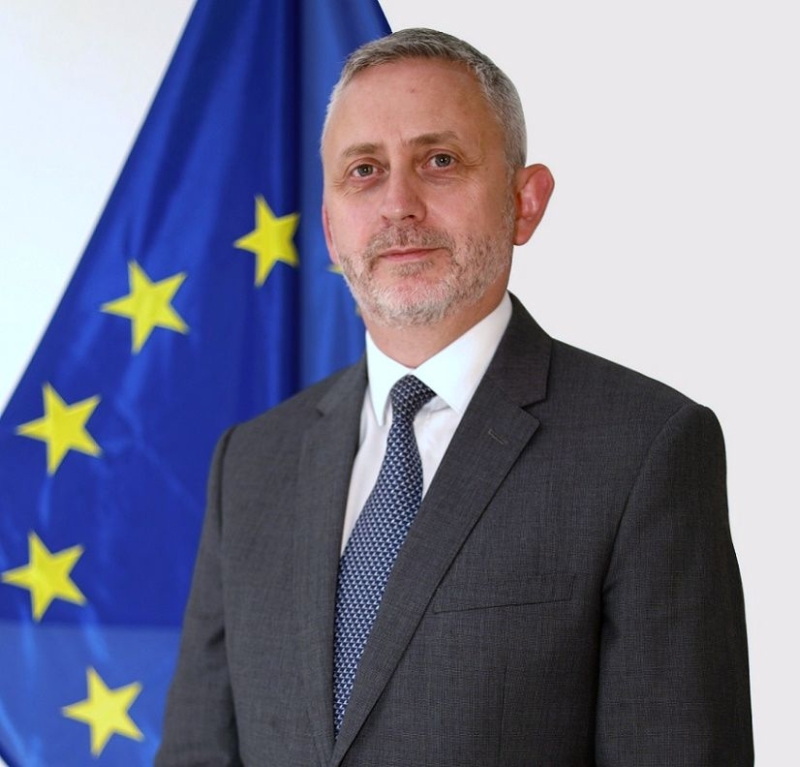- India Sees 9% Drop in Foreign Tourists as Bangladesh Visits Plunge |
- Dhaka Urges Restraint in Pakistan-Afghan War |
- Guterres Urges Action on Safe Migration Pact |
- OpenAI Raises $110B in Amazon-Led Funding |
- Puppet show enchants Children as Boi Mela comes alive on day 2 |
EU Grants €26m to Boost Education, Skills in Bangladesh

The European Union has disbursed €26 million to Bangladesh to support ongoing reforms in the primary education and technical and vocational education and training (TVET) sectors, aiming to strengthen the country’s education system and workforce development.
Speaking on Monday, EU Ambassador to Bangladesh Michael Miller said, “Education is one of the most powerful investments we can make for a more just, inclusive, and prosperous society. The EU is proud to partner with Bangladesh’s education reform agenda and our shared goal of building a future-ready, skilled generation.”
The grant recognises Bangladesh’s progress in implementing key reforms aligned with its National Education Policy, National Skills Development Policy, and Sustainable Development Goals (SDGs).
Ambassador Miller described the disbursement as both a recognition of progress and a reaffirmation of the EU’s partnership with Bangladesh to ensure that girls and boys, persons with disabilities, and marginalised youth are empowered through quality education and vocational training for decent employment and active citizenship.
The EU encouraged Bangladesh to further align its education and skills development reforms with the EU’s Global Gateway strategy, focusing on green and digital skills, inclusive and gender-responsive systems, and enhanced mobility pathways. According to the EU, this approach could open greater opportunities for Bangladesh’s workforce and deepen its links with global value chains and talent partnerships, especially in Europe.
The €26 million disbursed is part of the EU’s broader support package worth €245 million aimed at strengthening Bangladesh’s primary education and TVET sectors. Since 2018, the EU has provided €219.125 million in grants for these two sub-sectors, alongside an additional €6 million for technical assistance and institutional capacity building.
According to the EU Embassy in Dhaka, this financial support has helped Bangladesh achieve tangible progress in primary education. Remedial education programmes, supported by tailored teaching-learning materials and standardised assessment tools, have been piloted to address gaps in foundational literacy and numeracy.
In infrastructure, over 35,000 gender-segregated WASH blocks were constructed to promote inclusivity, and more than 3,400 primary schools were converted to single-shift operations, enhancing instructional time and improving classroom effectiveness.
In the TVET sector, the EU’s support enabled Bangladesh to develop the Bangladesh National Qualifications Framework (BNQF), which is now awaiting approval, and adopt a Quality Assurance Manual to standardise institutional practices. The country also published its first Annual Sector Performance Report (ASPR) for TVET, enhancing transparency and accountability.
Additionally, the recruitment of more than 1,470 new TVET instructors has helped address teacher shortages and improve the quality of vocational education across Bangladesh.
Ambassador Miller reaffirmed the EU’s long-term commitment to supporting Bangladesh’s inclusive economic growth through continued investment in education and skills development.

